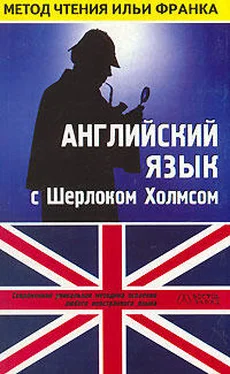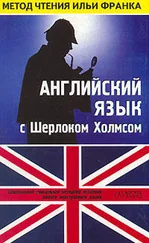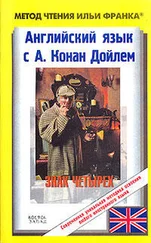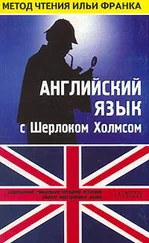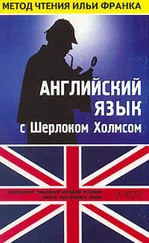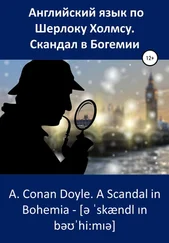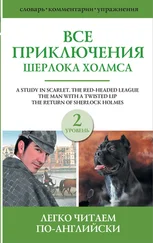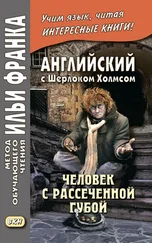grotesque [ɡrǝuˈtesk], theory [ˈƟɪǝrɪ], exist [ɪɡˈzɪst], coincidence [kǝuˈɪnsɪd(ǝ)ns], promiscuous [prǝˈmɪskjuǝs], iconoclast [aɪˈkɔnǝklæst], specimen [ˈspesɪmǝn]
“They are singular, not to say grotesque,” said Holmes. “May I ask whether the two busts smashed in Dr. Barnicot’s rooms were the exact duplicates of the one which was destroyed in Morse Hudson’s shop?”
“They were taken from the same mould.”
“Such a fact must tell against the theory that the man who breaks them is influenced by any general hatred of Napoleon. Considering how many hundreds of statues of the great Emperor must exist in London, it is too much to suppose such a coincidence as that a promiscuous iconoclast should chance to begin upon three specimens of the same bust.”
“Well, I thought as you do (что ж, я думал так же, как и вы) ,” said Lestrade. “On the other hand (с другой стороны) , this Morse Hudson is the purveyor of busts in that part of London (Морз Хадсон — поставщик бюстов в этой части Лондона) , and these three were the only ones (а эти три были единственными /бюстами/) which had been in his shop for years (что находились в его лавке в течение /многих/ лет) . So, although, as you say (поэтому, хотя, как вы говорите) , there are many hundreds of statues in London (в Лондоне много сотен = огромное число изваяний) , it is very probable (очень вероятно) that these three were the only ones in that district (что эти три были единственными в том районе; district — район; округ; местность) . Therefore, a local fanatic would begin with them (поэтому местный фанатик начал с них; therefore — по этой причине; следовательно, поэтому) . What do you think, Dr. Watson (что вы /об этом/ думаете, доктор Ватсон) ?”
“There are no limits to the possibilities of monomania (не существует пределов вероятностям мономании; limits — границы; рамки; пределы; monomania — мономания /болезненное состояние, проявляющееся в аномальной концентрации внимания на одной какой-либо мысли, идее/) ,” I answered (ответил я) . “There is the condition (существует такое состояние; condition — условие; состояние; нарушение, расстройство, болезненное состояние) which the modern French psychologists have called the ‘Idée fixe (которое современные французские психологи назвали «навязчивая идея») ,’ which may be trifling in character (которая может быть по сути пустячной; trifle — мелочь, пустяк; character — характер, нрав; личность; характерная черта; признак; особенность) , and accompanied by complete sanity in every other way (и сопровождаться полной вменяемостью во всех других отношениях; sanity — нормальная психика; здравый ум, рассудок; sane — здравый, находящийся в здравом уме; way — путь; способ, образ действия; отношение, аспект) . A man who had read deeply about Napoleon (у человека, который много читал о Наполеоне; to read [ri:d]-read [red]-read [red]; deeply — глубоко; серьезно) , or who had possibly received some hereditary family injury through the great war (или /который/, возможно, получил наследственное семейное оскорбление, нанесенное = узнал о какой-нибудь обиде, нанесенной его предкам во время наполеоновских войн: «великой войны»; to receive — получать; подвергаться; hereditary — наследственный, передаваемый по наследству; family — семья, род; семейный, фамильный; injury — вред, рана; оскорбление, обида) , might conceivably form such an idée fixe (возможно, могла сформироваться такая «навязчивая идея»; to form — принимать или придавать форму; приобретать) and under its influence be capable of any fantastic outrage (и под ее влиянием он способен на любые фантастические/причудливые выходки; outrage — грубое нарушение /закона, прав, приличий/; произвол; бесчинство) .”
purveyor [pǝ(:)ˈveɪǝ], limit [ˈlɪmɪt], answered [ˈɑ:nsǝd], psychologist [saɪˈkɔlǝʤɪst], hereditary [hɪˈredɪt(ǝ)rɪ], conceivably [kǝnˈsi:vǝblɪ], outrage [ˈautreɪʤ]
“Well, I thought as you do,” said Lestrade. “On the other hand, this Morse Hudson is the purveyor of busts in that part of London, and these three were the only ones which had been in his shop for years. So, although, as you say, there are many hundreds of statues in London, it is very probable that these three were the only ones in that district. Therefore, a local fanatic would begin with them. What do you think, Dr. Watson?”
“There are no limits to the possibilities of monomania,” I answered. “There is the condition which the modern French psychologists have called the ‘Idée fixe,’ which may be trifling in character, and accompanied by complete sanity in every other way. A man who had read deeply about Napoleon, or who had possibly received some hereditary family injury through the great war, might conceivably form such an idée fixe and under its influence be capable of any fantastic outrage.”
“That won’t do, my dear Watson (это /ваша теория/ не подходит, мой дорогой Ватсон) ,” said Holmes, shaking his head (сказал Холмс, покачав головой) , “for no amount of idée fixe would enable your interesting monomaniac (поскольку никакая «навязчивая идея» не позволила бы вашему занимательному маньяку; amount — величина, количество; степень; to enable — давать возможность /сделать что-либо/) to find out where these busts were situated (узнать, где находятся эти бюсты; to be situated — располагаться, находиться) .”
“Well, how do you explain it (ну а как вы это объясняете) ?”
“I don’t attempt to do so (я не пытаюсь сделать это = объяснить; to attempt — пытаться, стараться, делать попытку; attempt — попытка) . I would only observe (я бы только заметил; to observe — наблюдать, следить; замечать, подмечать) that there is a certain method in the gentleman’s eccentric proceedings (что некая есть система в эксцентричных поступках этого джентльмена; certain — точный, определенный; некий, некоторый; proceeding — акт, действие, поступок) . For example, in Dr. Barnicot’s hall (например, из прихожей доктора Барникота; example — пример, образец) , where a sound might arouse the family (где шум мог разбудить семейство; sound — звук; шум) , the bust was taken outside before being broken (бюст вынесли на улицу, прежде чем разбить; to break-broke-broken) , whereas in the surgery (тогда как в приемной) , where there was less danger of an alarm (где риск /вызвать/ тревогу был меньше; danger — опасность, угроза, риск) , it was smashed where it stood (бюст был разбит /там/, где он и стоял) . The affair seems absurdly trifling (это дело кажется чрезвычайно пустячным; absurdly — нелепо, абсурдно, глупо; до смешного) , and yet I dare call nothing trivial (однако я не рискую называть что бы то ни было незначительным; to dare — отваживаться, осмеливаться; рисковать) when I reflect that some of my most classic cases (когда я думаю /о том/, что некоторые из моих самых образцовых дел; to reflect — отражать; раздумывать, размышлять) have had the least promising commencement (имели наименее многообещающее начало = не предвещали ничего интересного; least — менее всего, в наименьшей степени; to promise — обещать) .
Читать дальше
